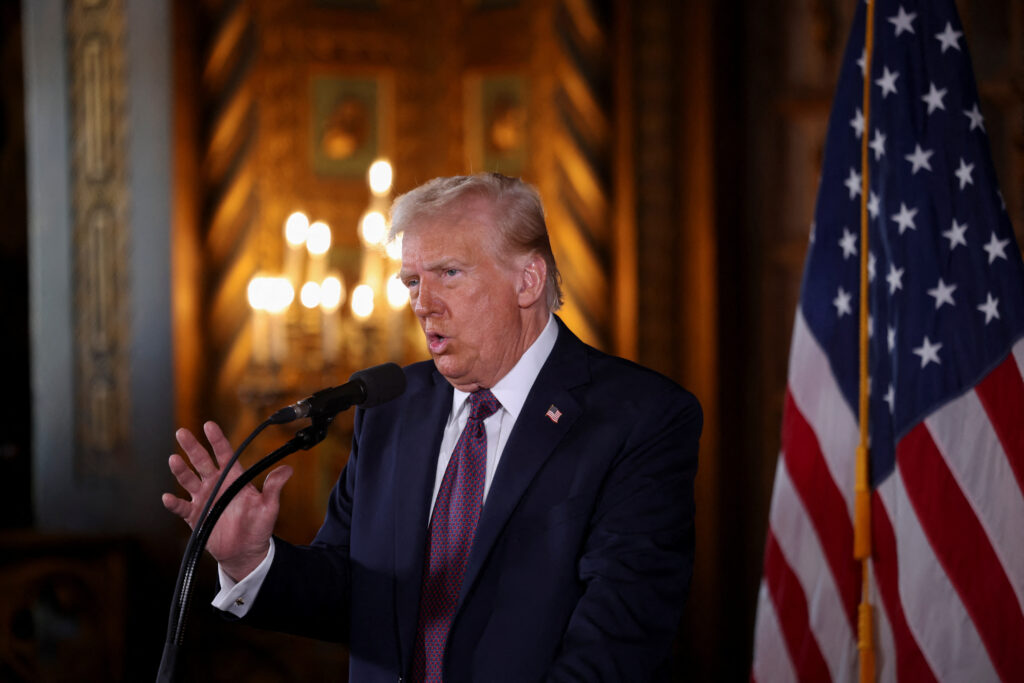By Satyaki Chakraborty
Ever since the inauguration on January 20 of Donald Trump as the U.S. President for the second term, the series of announcements made by the far right American President targeted its neighbouring countries Mexico and Canada as a part Trump’s expansionist agenda, Trump renamed the Gulf of Mexico as the Gulf of America and imposed 25 per cent tariff on Mexico and Canada on their exports to the U.S. with effect from February 1 this year.
While Canada which is facing a national elections later this year has shown panic on the part of its political leadership over the tariff as also the threat of the U.S. President to convert Canada into its 51st state, Mexican leadership has shown resilience and told the U.S. government that it would deal with the U.S. decision as per the running agreements as also international laws. No threat will be able to cow down the Mexican government and the people, Mexican President Claudia Sheinbaum has warned.
This confidence of the Mexican President comes from the political strength of the Mexican coalition of left wing forces MORENA and the wide acceptability that the present President has been getting from nearly 100 million people of the country. She was elected last year with a majority of 60 per cent . She took office on October 1 last year with an approval rating of 80 per cent. . Her support base has further widened with the implementation of the fourth transformation programme designed to raise the living standards of the people at the lower and the middle levels to the higher ones.
While in Canada, both the ruling party of Justin Trudeau and the opposition combination are approaching Trump with folded hands for sparing them, Mexican President has got the mandate of all her coalition partners to fight Trump.2 threat to protect the sovereign rights of a free nations. Mexico does not oppose the deportation of undocumented citizens of its country, but the government will certainly see that no illegal action is taken by the new Trump government against its citizens with the legal documents.
Trump administration is expected to take a revengeful attitude against the left leaning regimes of Latin America. Mexico knows that. The Government is fully prepared to meet any new onslaught from the U.S. administration. Trump already has cancelled the order of the outgoing President Joe Biden on Cuba. Now Cuba will be again be treated as a terrorist state. The U.S. blockade will remain though there was some hopes last year that after Biden’s latest order, concessions will be given to Cuba relating to blockade.
Mexican President is focusing on her government’s massive developmental programmes to rally people behind the MORENA coalition. She is addressing meetings in cities outside the national capital and explaining the contents of the fourth transformational programme. She reported on healthcare: 12,381 new outpatient clinics have been created, and healthcare workers soon will be regularly visiting handclapped or elderly citizens in their homes. New “well-being pharmacies” will be located next to “well-being banks.” The one dispenses free medications and supplies; the other disperses money provided by social agencies. Scheinbaum claimed savings worth “23 billion pesos,” or $1.1 billion USD, achieved through “digital platforms and transparent methods” plus the requirement that suppliers offer low-price bids to be able to sell drugs and medications to the government.
She said that the government continues “to acquire new medical equipment, hire more specialists, and broaden our care network” in support of healthcare provided by Mexico’s three big social security institutes. The one AMLO established, the Institute of Social Security for Well-Being, “will be assuming the care of 53.3 million people without social security.” With its creation, 707 hospitals and 13,966 health centres “were transferred into an organizationally decentralized network of care.” She spoke of education: 410,000 higher education students and 4,214,000 preparatory students will receive scholarships. The families of 4,100,000 primary school students will receive financial assistance. A “new model of preparatory schools” is in the works, with 20 new ones and the expansion of 65 others.
The Rosario Castellanos National University, a multi-campus, decentralized university system established by Sheinbaum when she headed Mexico City’s government, will be adding six new campuses to accommodate 25,000 students. Units have appeared throughout Mexico, and “places have been established for 330,000 new university students to receive free education.”
Commenting on working conditions, Sheinbaum cited “a record number of formally employed workers” in 2024, “the highest average salary level in history,” “inflation under control,” and a 125% minimum wage increase since 2018. The president also indicated reforms are on the way: Women’s retirement age will be reduced from 65 years of age to age 60. She explained: “They ask me, why only women … [and] we ask, who mainly takes care of children? Who takes care of the home? … Well, since now there is a woman president … we are going to recognize the work of Mexican women.”
There are plans for “at least one million new housing units for people whose salaries are less than three minimum salaries,” with 125,000 of them being built in 2025. Her administration has approved constitutional reforms and amendments proposed by the AMLO government, including: democratic election of judges; recognition of public ownership of the Pemex oil company and Mexico’s Federal Electricity Commission; recognition of full rights for indigenous and African-descended peoples, with funding for social infra-structure; and protection of women’s constitutional rights “of equality, lives free of violence, and equal salaries for equal work.”
She promised that “Mexico will be a scientific power.” She mentioned resources being developed for scientific and technological advances. Mexico, she indicated, will be making electric vehicles, creating new software and applications for artificial intelligence, finding ways to extract and process lithium, and designing semi-conductors.
She detailed plans for massive build-up of transportation networks, including railroads—with emphasis on passenger services—and highway development. She promised expansion of electricity-generation capacities. The state-owned Federal Electricity Commission will soon account for 54% of the amount generated. The new president dealt with the problems of corruption, violent crime, and financial instability. She insisted that, “[R]esources for the well-being and development of the country will expand, thanks to…eradication of corruption.”
She was optimistic about finances, reporting that Mexico’s international currency reserves of $229 billion dollars “are at a record high, that her economy is the world’s 12th largest, and that tax payments in 2024 were up 4.5% over the previous year.” The president also discussed relations with the United States, a topic of widespread apprehension in Mexico due to the return of Donald Trump to power.
The Mexican people, she said, “are honest, hardworking and courageous … There is the example of our sisters and brothers in the United States who this year sent close to $65 billion USD to their families. They contribute to Mexico’s economy, but … [they also] contribute more to the U.S. economy, because what they send to Mexico is only 20% of what they leave there in consumption, savings, and taxes.”
Mexican President mentioned that the U.S.-Mexico-Canada Agreement on free trade is still valid and it represents the only option in dealing with economic competition from other countries.US exports to Mexico constitute 16 per cent of its total while Mexico exports 80 per cent of its total to USA.
But simultaneously Mexican President s was categorical “We will not return to the neoliberal model; we will not return to the regime of corruption and privileges, we will not let the decadence of the past return, where we governed for a few. We will continue with … the maxim ‘For the good of all, [but] first the poor.’” (IPA Service)

 Centre Still Refusing To Grant Scheduled Tribe Status To Left-Out Gorkha Tribes
Centre Still Refusing To Grant Scheduled Tribe Status To Left-Out Gorkha Tribes 